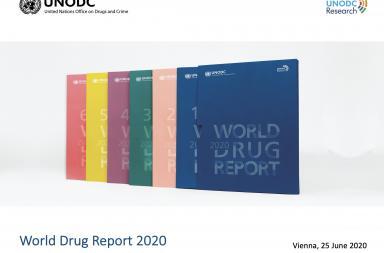This post is also available in:  Italiano (Italian)
Italiano (Italian)
Legal tensions are growing within the international drug control regime as increasing numbers of member states move towards or seriously consider legal regulation of the cannabis market for non-medical purposes. Amongst reform options not requiring consensus, inter se modification appears to be the most ‘elegant’ approach and one that provides a useful safety valve for collective action to adjust a treaty regime arguably frozen in time.
Key Points
- Legal tensions are growing within the international drug control regime as increasing numbers of member states or jurisdictions therein move towards or seriously consider legal regulation of the cannabis market for non-medical purposes, a policy choice not permitted under the existing UN legal framework.
- Reaching a new global consensus to revise or amend the UN drug control conventions to accommodate cannabis regulation, or that of other psychoactive plants and substances currently scheduled in these treaties, does not appear to be a viable political option in the foreseeable future.
- The application of dubious or ‘untidy’ legal arguments to accommodate regulated cannabis markets does little for the integrity of the regime, undermines respect for international law more broadly and is not sustainable.
- Appealing to human rights obligations can provide powerful arguments to question full compliance with certain drug control treaty provisions, but does not in itself resolve the arguable conflict between different treaty obligations.
- States may wish to adopt a stance of respectful temporary non-compliance as they pursue legally valid and appropriate options for the re-alignment of international obligations with domestic policy.
- The nature of the international drug control regime’s internal mechanisms does much to limit avenues for modernisation and forces states to consider extraordinary measures, such as the rightful choice made by Bolivia in relation to coca to withdraw and re-adhere with a new reservation.
-
Amongst reform options not requiring consensus, inter se modification appears to be the most ‘elegant’ approach and one that provides a useful safety valve for collective action to adjust a treaty regime arguably frozen in time.
-
Inter se modification would require the like-minded agreement to include a clear commitment to the original treaty aim to promote the health and welfare of humankind and to the original treaty obligations vis-à-vis countries not party to the agreement.
-
A legally-grounded and coordinated collective response has many clear benefits compared to a chaotic scenario of a growing number of different unilateral reservations and questionable re-interpretations.
-
Among other things, inter se modification would provide opportunities to experiment and learn from different models of regulation as well as open the possibility of international trade enabling small cannabis farmers in traditional Southern producing countries to supply the emerging regulated licit spaces in the global market.
-
Inter se modification would facilitate the development of what, within an international policy environment characterized by faux consensus, is increasingly necessary: a ‘multi-speed drug control system’ operating within the boundaries of international law, rather than one that strains against them.




